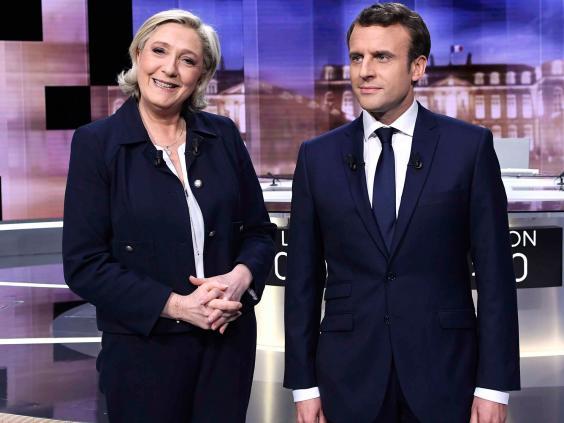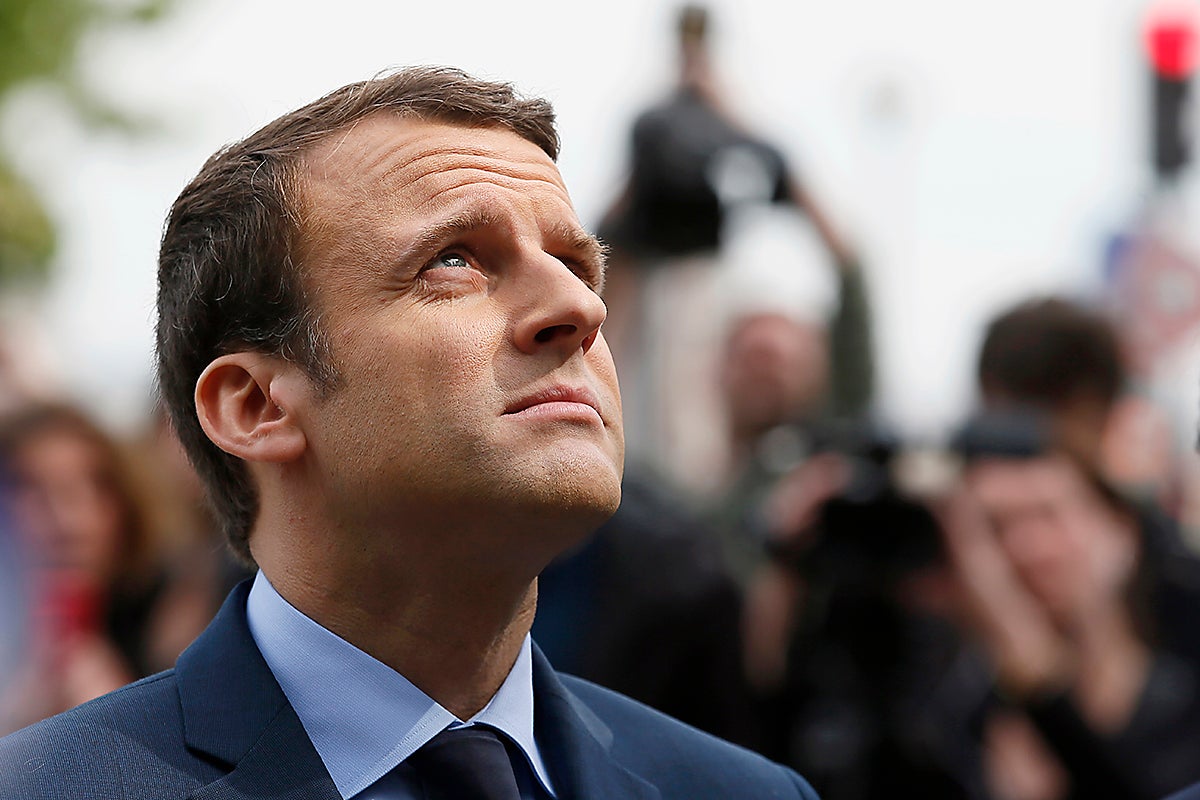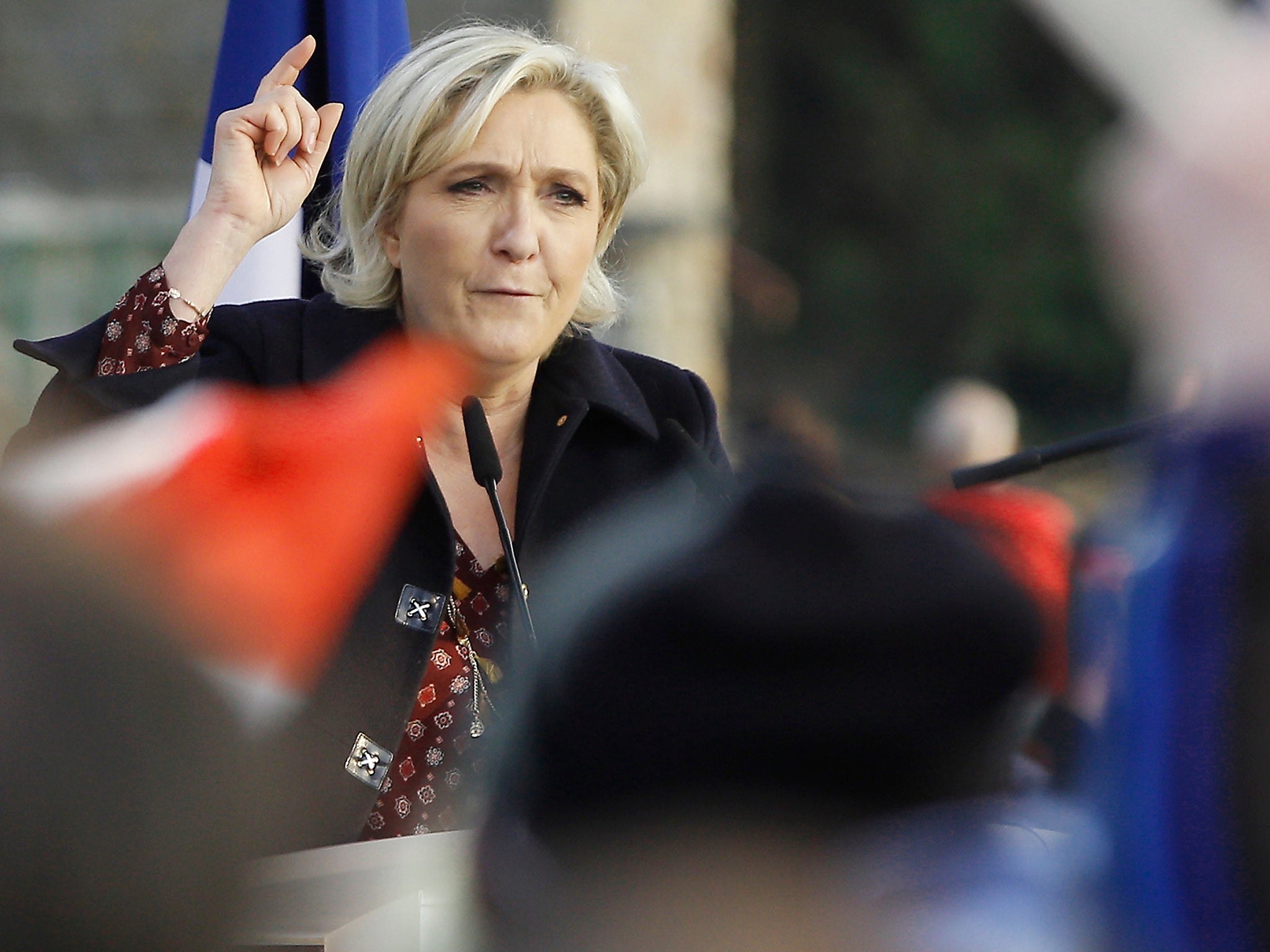The troubling history at the heart of the French election
'If you don't know the history of Algeria, you cannot understand France in 2017'

Your support helps us to tell the story
From reproductive rights to climate change to Big Tech, The Independent is on the ground when the story is developing. Whether it's investigating the financials of Elon Musk's pro-Trump PAC or producing our latest documentary, 'The A Word', which shines a light on the American women fighting for reproductive rights, we know how important it is to parse out the facts from the messaging.
At such a critical moment in US history, we need reporters on the ground. Your donation allows us to keep sending journalists to speak to both sides of the story.
The Independent is trusted by Americans across the entire political spectrum. And unlike many other quality news outlets, we choose not to lock Americans out of our reporting and analysis with paywalls. We believe quality journalism should be available to everyone, paid for by those who can afford it.
Your support makes all the difference.This year's election in France has proven that phrase - first coined by prominent French historian Henry Rousso - to be more than prescient. In subtle and not-so-subtle ways, France's complicity in the Holocaust and, to a profound degree, its colonial crimes have been defining themes of the most contentious presidential campaign in recent memory. When voters go to the polls Sunday, they will choose between warring interpretations of France's past as much as between different visions for its future.
Emmanuel Macron and Marine Le Pen, the two candidates in the final round of the vote, are distinct in many ways. Macron, a former investment banker and the darling of Parisian and academic elites, is a boyish acolyte of cosmopolitan Europe; Le Pen, a hard-line nationalist, is an advocate of economic protectionism and closed borders. But rarely are the two more opposed than when they talk about history, as they have done frequently throughout a long and bitter campaign.
For Le Pen - the daughter of Jean-Marie Le Pen, a convicted Holocaust denier who repeatedly has dismissed the Nazi gas chambers as a "detail of history" - the past is nothing to be ashamed of. Last month, she remarked on national television that France bore no responsibility for an infamous Paris roundup during the Holocaust, when French authorities arrested some 13,000 Jews, soon deported to their deaths.
Approximately 76,000 Jews were deported from France to the Nazi concentration camps during World War II. Most never returned.
"If there were those responsible," Le Pen said, "it was those who were in power at the time. This is not France."
Versions of Holocaust denial and revisionism have clouded Le Pen's National Front party throughout the 2017 campaign. In early March, a party official in Nice was caught on camera saying that "there weren't mass killings as it's been said." In late April, Jean-François Jalkh, Le Pen's appointed deputy of the National Front during the closing days of the campaign, was reported to have said - in an on-the-record interview in 2000 - that the Nazis never used the poison gas Zyklon B to exterminate millions of Jews and others.
"From a technical point of view it's impossible," Jalkh allegedly said in that interview, although since then he has claimed he can't remember saying so and sued the Le Monde newspaper for presenting him as a Holocaust denier.
Macron, by contrast, has chosen - at significant political risk - to confront head-on other dark chapters of France's past, especially colonialism. Some say the tactic stems from his early days as an assistant to the late French intellectual Paul Ricoeur, whose work often examined the intersections of history and memory.

In one of Macron's most controversial decisions on the campaign trial, he went in February to Algeria, which France had annexed for 132 years, and called on the French state to apologise formally for its crimes as a colonial power, especially in the bloody war for Algerian independence between 1954 and 1962. France's history in that war, Macron said in an interview days later, represented "crimes and acts of barbarism" that today deserve to be labelled "crimes against humanity."
For months, Le Pen has harped on Macron for those three words, accusing him once again in a televised debate Wednesday of "insulting" the French people.

In a high-profile case, her father, in the 2002 presidential campaign, was accused of torture during the Algerian War - charges that the elder Le Pen vehemently disputes.
Benjamin Stora, France's preeminent expert on colonial Algerian history and a founding member of Paris's National Museum of the History of Immigration, said in an interview that the outcry over Macron's declaration has highlighted the ways in which, at least in this election, the past remains present.
"For many people, colonialism has always been a distant abstraction, a peripheral problem," he said. "But no one today who is honest can see it that way anymore. The question of immigration is a central question in our society and in many ways, the question."
So many of the problems in French society today, Stora said, stem from the aftermath of France's colonial history - and the French state's struggles to integrate immigrants from across the once-expansive French empire.
"If you don't know the history of Algeria, you cannot understand France in 2017," he said.
This year's election has widely been regarded as historic, with both principal candidates representing parties outside the center-left and center-right that have governed the country since 1958. Many even have pondered the degree to which this election represents a departure from the statist model envisioned by Charles de Gaulle, with a president as a powerful executive who embodies the dignity of the nation.
For some, however, the prospect of a National Front victory at the presidential level is the opposite of a new development.
"When you place them within the framework of the continuity of French history, you cannot find one single new element brought by the Le Pen family and their movement," Zeev Sternhell, a prominent historian of French fascism, said in an interview. "This is classic hard-right nationalism with the usual xenophobia, the hatred of the 'other' and the cult of the people against the elite."
That ideology, Sternhell added, has been a constant in French history since 1789, manifesting throughout the 19th century. It appeared, Sternhell said, in episodes such as the "Dreyfus affair," when a Jewish military captain was wrongly accused of treason, and later during the Vichy government in World War II, when a long-dormant far right capitalized on military defeat to take power.
A Le Pen victory in 2017, Sternhell said, "would be an anti-Enlightenment and anti-liberal revolution."
For Rousso, who recently was detained in the United States during President Trump 's "travel ban," one of the many issues at stake in France's election is the politics of memory - especially complicated in a diverse society that blends a multitude of immigrant experiences.
"A principal challenge for the next president of the republic will be to try and find a way to reconcile different memories," he said. "And more importantly, divided memories."
In the meantime, he said, the past is here to stay.
Washington Post
Join our commenting forum
Join thought-provoking conversations, follow other Independent readers and see their replies
Comments